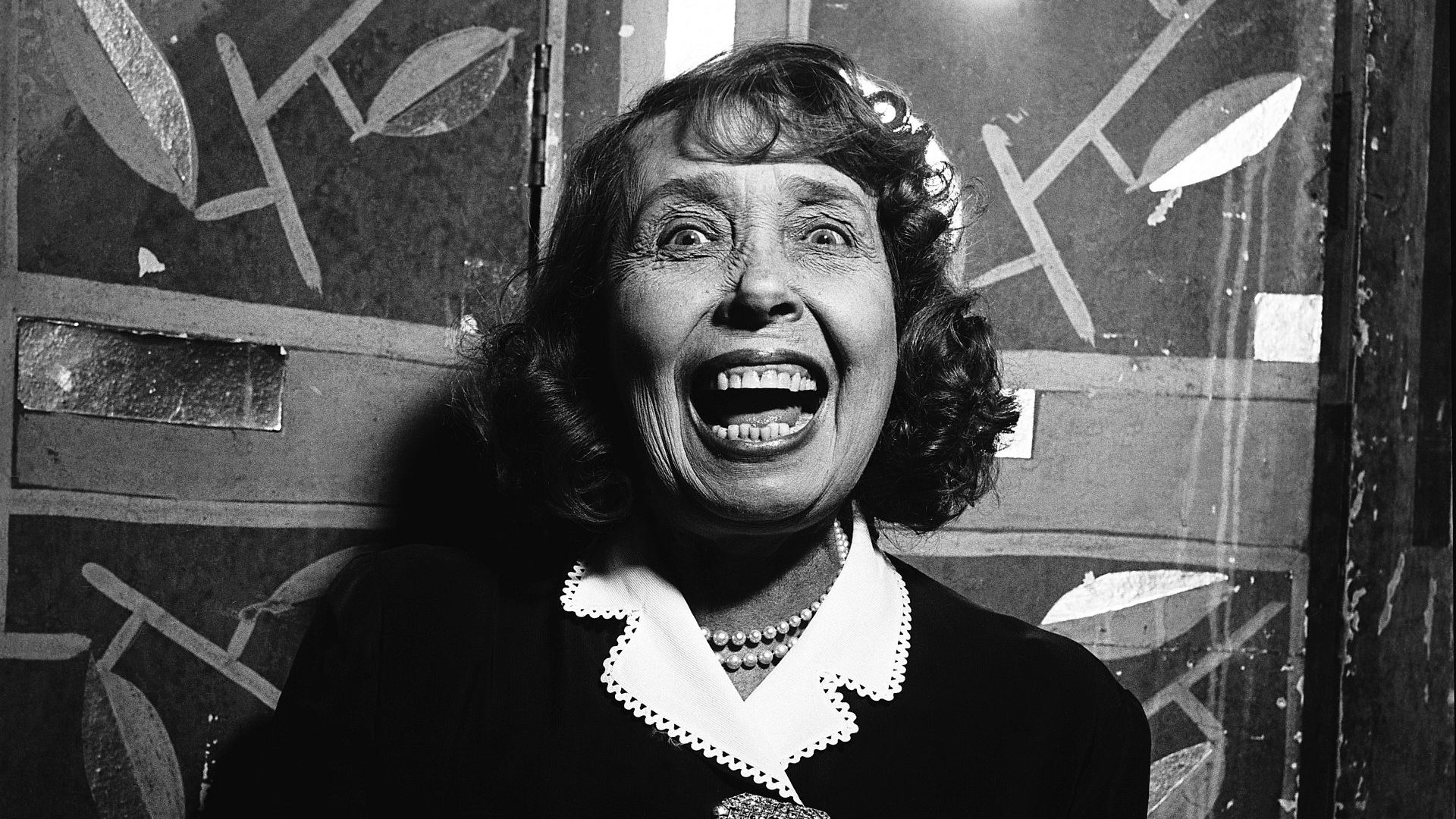When she was 12 years old, Jeanne Bourgeois and two friends embarked on a surreptitious, meticulously planned day trip. Having spun their parents a yarn about a walk in the countryside, the three girls caught an early train from their home town of Enghien, between Brussels and Lille, and made for Paris.
None of them had ever been to the French capital before but they knew exactly what they wanted to see and, having pored over maps of the city at their local library, knew exactly where they were going.
Shortly before midday the trio made their way to Montmartre and found what they had come to see. The three stood agog in front of the Moulin Rouge.
“It was closed, of course, at that hour,” recalled Bourgeois decades later. “But even so, something of its iniquity seemed to exude from the lifeless, sinister edifice and we shivered with the thrill of our first contact with sin.”
On the train journey home, looking out at the city suburbs giving way to farmers’ fields, Jeanne Bourgeois knew the world would never look the same again.
Years later, as the song-and-dance showgirl Mistinguett, Jeanne Bourgeois would practically own the Moulin Rouge stage as well as every other in the city, from the Casino de Paris to the Folies Bergère, enchanting future monarchs and legendary dandies alike, embodying everything that was magnificent and sleazy about the decadent, twilight Paris of the turn of the 20th century.
So emblematic of the city’s spirit did she become that Mistinguett seemed timeless even in her own lifetime. In 1936, at the age of 62, she played a 25-year-old dancer in the title role of the film Rigolboche. At 72 she embarked on a gruelling cabaret season in postwar London, taking the stage in a 40lb costume with a 20-foot train and a towering feathery headdress. One critic described how “down the stairs she sauntered, scattering brightness like golden dust, and Paris, Reine du Monde she threw at us as carelessly as if it had been a handful of violets”.
She became the highest-paid woman entertainer in the world and reportedly insured her legs for 100,000 francs. Colette called her a “spiritual diva”, a woman with “the most beautiful legs in Paris and the most gracious smile in the whole world”. The future Edward VII of England was a fan, visiting her backstage.
“I wanted to meet you because you are absolutely, genuinely, Parisian,” he gushed, predicting, “one day you will represent Paris for the whole world.”
Even Oscar Wilde once appeared in her dressing room bearing compliments and a bouquet.
“I forget what he said, I don’t think it was particularly witty,” she recalled. “The flowers were nice, though.”
Yet for all her startling fame, impressive longevity and celebrity admirers, Mistinguett was neither a natural singer or dancer, nor was she conventionally beautiful. The daughter of a Belgian mattress stuffer who died when she was six, Jeanne Bourgeois worked for her mother’s laundry as a girl and once delivered a bill to the noted actress Anna Thibaud. Shyly admitting to theatrical ambitions of her own, Bourgeois was forced to endure the doyen of the stage informing her she was “much too plain for the theatre. If you want to be a success on the stage, child, you must have looks”.
What Bourgeois may have lacked in natural ability, however, the Mistinguett character she devised more than made up for with sheer belief and “puissance de travail”, as she put it – “the power of work”.
“I have always worked as a woman on my own, alone, and by that I mean that I have owed my success to no lover nor to anyone else at all,” she said. “I have maintained my independence and hidden my face every morning behind the mask of ferocious determination that one wears to hide one’s secrets from the world.”
Despite Thibaud’s withering discouragement, Bourgeois’ illicit visit to the Moulin Rouge only fired her determination to haul herself out of Enghien.
“In the early days the theatre for me meant chiefly an escape from the nightly bowl of leek soup, the drab suburban streets, the smell of fusty bedding and the cramping effect of honest poverty,” she said.
Relocating to Paris as soon as she was able, Mistinguett hoofed and warbled her way around the city’s cafes and sleazier clubs, honing an image and an act that walked a tightrope between serious performance and saucy vulgarity. The mixture worked, and her fame was ensured by a long association during the 1890s with the Eldorado club. Jean Cocteau recalled how in his youth he and his friends would gather there, “pooling our small savings to buy one of the stage boxes, ideal for throwing bouquets to Mistinguett”.
Her fierce independence dictated that she never married, although she did have a son by a Brazilian father and enjoyed a decade-long relationship with Maurice Chevalier, 13 years her junior.
If anyone was the love of her life it was Chevalier, an affection that led to Mistinguett’s unlikely induction into the world of espionage during the first world war. When she learned in 1916 that Chevalier had been wounded and captured, she was determined to bring him home.
“Let all your German prisoners go back to Berlin and give me Maurice,” she demanded of the French War Office, “What are a few thousand Germans compared with one Chevalier?”
Setting off to find him herself, she was arrested by French soldiers en route to Geneva but gave her captors the slip and arrived in Switzerland where the Red Cross was able to identify the German prison camp in which Chevalier was incarcerated. Attempting to reach the camp she was arrested and blackmailed by the German authorities into acting as a spy for them if she ever wanted to see Chevalier again.
Having related this to a French spy she agreed to in effect become a double agent until the Germans discovered her subterfuge and sentenced her to death. She was reprieved by a prisoner swap, returned to Paris and the recuperating Chevalier – who promptly ended their relationship.
Mistinguett was an extraordinary character perfectly suited to extraordinary times, a woman who managed to retain the mask of the persona she created to the end, lingering on her deathbed in a pink silk nightdress on pink silk bedding, determined to keep up the performance to the last.
“I have one gift,” the woman born Jeanne Bourgeois once told an interviewer, “and that is vitality. The rest had to be created.”




